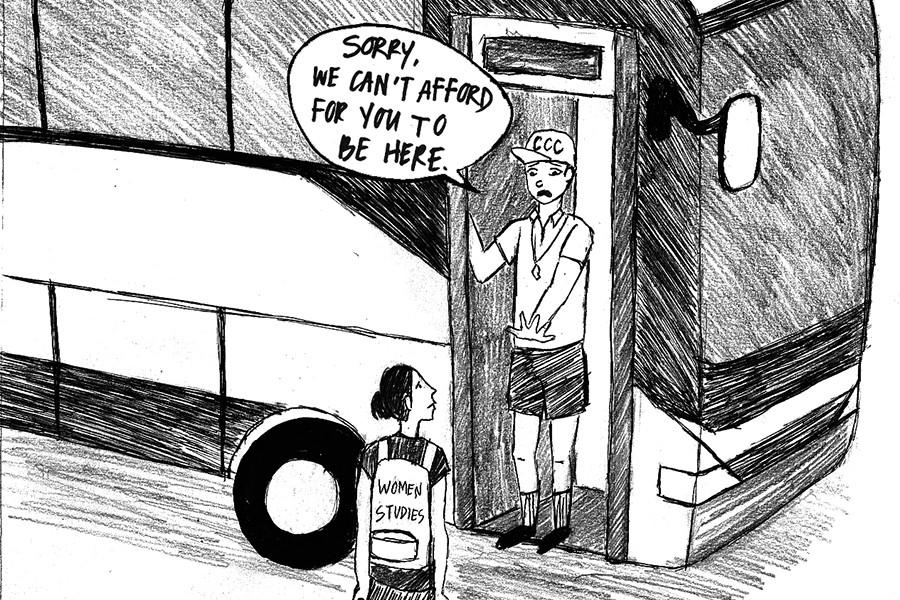Educational misogyny
Ignorance leads campus into nonexistent women’s studies
Mar 9, 2016
Students who want to enroll in a women’s study course at Contra Costa College to learn how gender inequalities affect local, national and global socio- economic spheres steeped in misogyny will have to look elsewhere.
For the 2015 semester, students interested in pursuing a major in women’s or gender studies are limited to courses like Introduction to Gender, Introduction to marriage and Family, or Contemporary Men.
The college continues to ignore the issues of its largest student demographic by not offering college level courses that focus on gender or women’s issues within society.
While the courses currently being offered do touch on contrived gender roles and their effects within a certain society, they do not provide a holistic perspective in terms of politics, economics and religion that a women’s studies course would — a course that has not been offered at the college since the 1970s.
The district should work with faculty and students to create a gender and women’s studies department similar to the La Raza and African American studies programs at CCC.
While it is admirable that La Raza studies department Chairperson Agustin Palacios is organizing to bring a LGBTQ course to the college catalog, the college needs to have a program dedicated to women and gender studies like UC Berkeley, UC San Francisco, and San Francisco State.
In order to tap into extra funding through enrollment and increase transfer rates the college needs to access its most prominent and consistent group of students by partnering with these colleges.
A partnership that would coincide with the constant majority of its student population and increase enrollment.
CCC not only has a higher percentage of female students enrolled compared to its sister colleges Diablo Valley College or Los Medanos College, and its female student majority ranks at 17 out of the 113 colleges statewide according to the California Community Colleges Chancellor’s Office Data Mart search engine.
About 59 percent of students during the 2015 fall semester at CCC registered as female, 40 percent as male and 1 percent did not register as either.
The number of female to male students at the college makes up a 19 percent difference compared to LMC’s 2 and DVC’s 8 percent differences in gender demographics.
Despite having more female students and faculty members consistently since 2005, the number of courses offered that focus on women’s studies have not been reflective of CCC’s gender demographics.
Dr. Palacios spearheading the creation of a LGBTQ course is a step toward gender education by bringing the controversial issues surrounding gender up for discussion in a scholarly setting.
But this is only a temporary solution and has the potential to flop unless people have enough leadership to voice their concerns about the lack of a women’s and gender studies program to college and district administrators.


